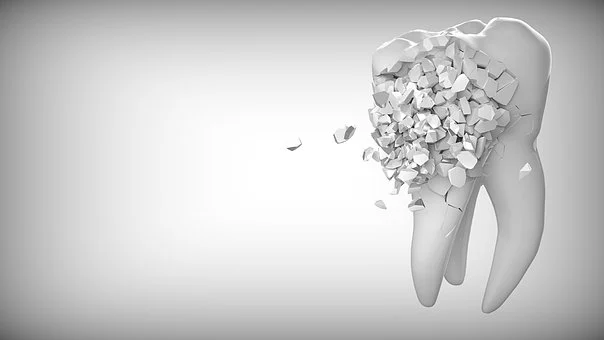When most people think about visiting the dentist, they think about getting cleaning, filling a cavity, or fixing a broken tooth.
The oral cavity is not just important for eating and speaking; it can also provide important clues about a person’s overall health.
Many genetic diseases have symptoms that appear in the oral cavity, which means that dentists can play an important role in diagnosing these conditions. In fact, many rare genetic diseases can be diagnosed by checking for certain symptoms in the mouth.
Here are the top 10 rare genetic diseases that can be diagnosed by checking symptoms in the mouth:
1. Amelogenesis Imperfecta (AI)
AI is a group of rare genetic disorders that affect the development of tooth enamel, resulting in teeth that are weak and discolored. The teeth may also be prone to breaking or chipping
A dentist can diagnose AI by examining the appearance and structure of the patient’s teeth.
2. Dentinogenesis Imperfecta (DI)
DI is a genetic disorder that affects the development of dentin, the layer of tissue beneath the enamel. This can result in teeth that are discolored, misshapen, and prone to breakage. A dentist can diagnose DI by examining the appearance and structure of the patient’s teeth.

3. Xeroderma Pigmentosum (XP)
XP is a rare genetic disorder that affects the skin’s ability to repair damage caused by ultraviolet (UV) radiation. People with this condition may develop oral cancer due to prolonged sun exposure. A dentist can identify oral lesions or tumors that may be indicative of XP.
4. Oral-Facial-Digital Syndrome (OFD)
OFD is a group of genetic disorders that affect the development of the face, mouth, and digits. People with this condition may have cleft palate, missing teeth, and malformed jaws. A dentist can identify these oral abnormalities during an examination.
5. Ectodermal Dysplasia (ED)
ED is a group of genetic disorders that affect the development of teeth, hair, nails, and sweat glands. People with this condition may have missing or malformed teeth, as well as thin, sparse hair and a reduced ability to sweat. A dentist can identify dental abnormalities and other symptoms of ED during an examination.
6. Epidermolysis Bullosa (EB)
EB is a group of genetic disorders that affect the skin’s ability to resist damage. People with this condition may develop blisters and sores in the mouth, as well as other areas of the body. A dentist can identify oral lesions and sores that may be indicative of EB
7. Hereditary Hemorrhagic Telangiectasia (HHT)
HHT is a #geneticdisorder that affects the development of blood vessels. People with this condition may develop abnormal blood vessels in the mouth, which can lead to bleeding and other complications.
A dentist can identify #oral telangiectasias (small, dilated blood vessels) that may be indicative of HHT.

8. Treacher Collins Syndrome (TCS)
TCS is a genetic disorder that affects the development of the face and skull. People with this condition may have underdeveloped jaws and missing or malformed teeth. A dentist can identify dental abnormalities and other facial abnormalities that may be indicative of TCS.
9. Osteogenesis Imperfecta (OI)
OI is a genetic disorder that affects the development of #bones, resulting in bones that are fragile and prone to fractures. People with this condition may also have brittle teeth that are prone to breakage. A #dentist can identify dental abnormalities and other symptoms of OI during an examination.
10. Ehlers-Danlos Syndrome (EDS)
A group of genetic disorders that affect the body’s connective tissues. People with this condition may have hypermobile joints, stretchy skin, and a high risk of dental problems such as temporomandibular joint (TMJ) disorder and #gumdisease.
While these conditions are rare, it’s important to be aware of them. A proper diagnosis can help ensure the appropriate treatment and care to manage the condition and improve the quality of life of the patient.
As a #dental or #medical professional, it is good to gather a basic understanding of #rarediseases and the underlying genetic mechanisms. Thus, increasing the knowledge base in #dentalgenetics is of utmost importance to achieve a pinpointed diagnosis of these kinds of diseases, proper referrals and designing an effective therapeutic strategy.
Are you a dental graduate, postgraduate, PhD student or an early career researcher or practitioner? Then check below and think if you want to miss this………..
Master Molecular Dentistry with our Hybrid Training Event!




